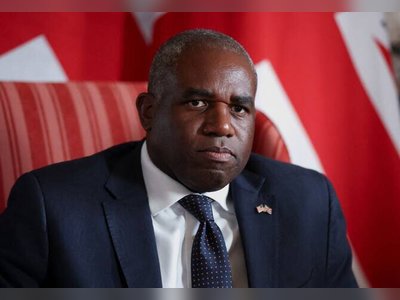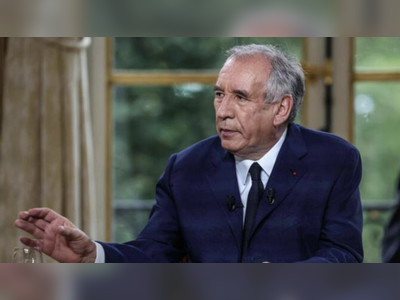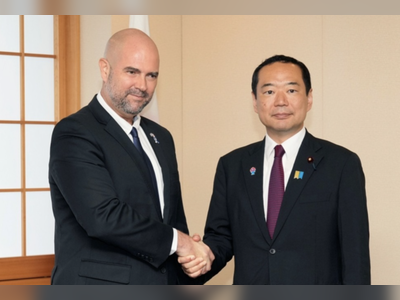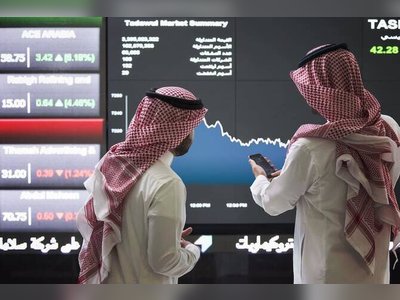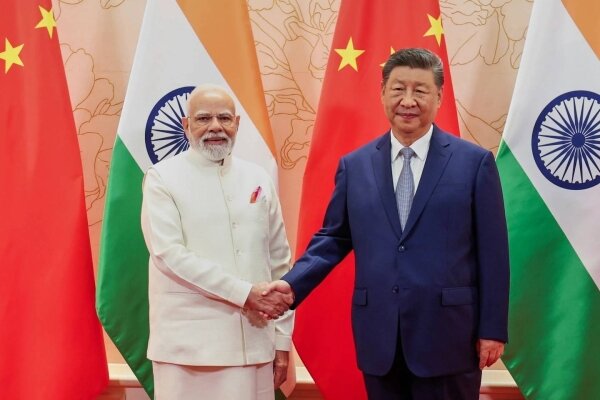
Xi and Modi Pledge to Ease Border Tensions at Northern China Summit
Chinese leader Xi Jinping and Indian Prime Minister Narendra Modi agree to strengthen cooperation amid regional summit.
In a significant diplomatic development, Chinese leader Xi Jinping and Indian Prime Minister Narendra Modi have pledged to resolve border differences and enhance bilateral cooperation.
This agreement marks a notable shift in relations following deadly border clashes in 2020.
The meeting, which took place in Tianjin, was attended by both leaders as part of India's membership in the Shanghai Cooperation Organization, a political, economic, and security bloc founded by China.
Modi's visit represents his first to China since the tensions arose.
He emphasized that establishing a 'peaceful environment' at the border is essential for advancing bilateral ties.
Xi, too, stressed the need to elevate their relationship beyond border disputes, focusing instead on economic development as the primary goal of their partnership.
The two leaders agreed that if they remain committed to this approach, China-India relations will continue to flourish.
Additionally, Russian President Vladimir Putin also arrived in Tianjin and is expected to meet with both Xi and Modi in the coming days.
This rapprochement between India and China comes as India faces fresh trade tensions with the United States, particularly regarding its purchase of Russian oil.
In response, the US imposed 50% tariffs on Indian exports this month.
Modi stated that relations with China should not be viewed through the lens of ties with any third country.
Historically, China and India have had longstanding tensions dating back to their border war in 1962, as well as recurring clashes along their contested Himalayan frontier.
The 2020 Galwan Valley conflict was particularly notable for its deadly consequences, marking a significant escalation in decades.
Despite disengagement efforts in some areas, both countries maintain substantial military deployments within disputed territories.
While analysts view Sunday's pledge as a positive step toward easing tensions, it leaves the resolution of major territorial disputes unresolved.
This agreement marks a notable shift in relations following deadly border clashes in 2020.
The meeting, which took place in Tianjin, was attended by both leaders as part of India's membership in the Shanghai Cooperation Organization, a political, economic, and security bloc founded by China.
Modi's visit represents his first to China since the tensions arose.
He emphasized that establishing a 'peaceful environment' at the border is essential for advancing bilateral ties.
Xi, too, stressed the need to elevate their relationship beyond border disputes, focusing instead on economic development as the primary goal of their partnership.
The two leaders agreed that if they remain committed to this approach, China-India relations will continue to flourish.
Additionally, Russian President Vladimir Putin also arrived in Tianjin and is expected to meet with both Xi and Modi in the coming days.
This rapprochement between India and China comes as India faces fresh trade tensions with the United States, particularly regarding its purchase of Russian oil.
In response, the US imposed 50% tariffs on Indian exports this month.
Modi stated that relations with China should not be viewed through the lens of ties with any third country.
Historically, China and India have had longstanding tensions dating back to their border war in 1962, as well as recurring clashes along their contested Himalayan frontier.
The 2020 Galwan Valley conflict was particularly notable for its deadly consequences, marking a significant escalation in decades.
Despite disengagement efforts in some areas, both countries maintain substantial military deployments within disputed territories.
While analysts view Sunday's pledge as a positive step toward easing tensions, it leaves the resolution of major territorial disputes unresolved.






